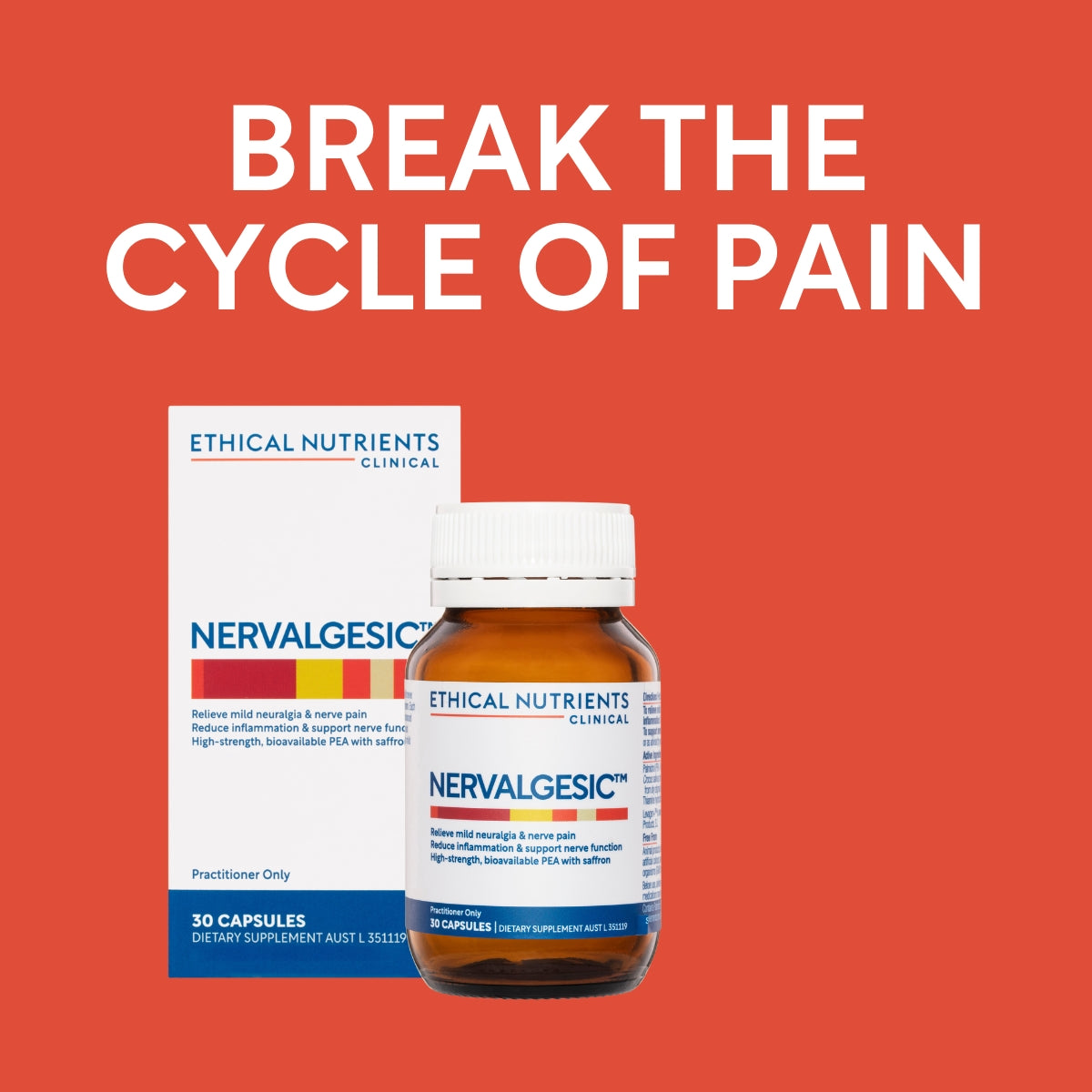Omega-3 fish oil has surged in popularity in recent years, rising as an important component of a healthy diet. Specifically, the Mediterranean diet attributes its amazing health benefits significantly to the inclusion of fish oil. Mounting evidence indicates that fish oil reduces health risks at all ages and may help reduce inflammation, promote brain and heart health, and protect against several chronic conditions.¹
What is Omega-3?
Omega-3s are a family of essential fatty acids that play important roles in your body, providing a number of health benefits. These fatty acids cannot be produced by the body and must be consumed from the diet or through supplementation. The three most important types are;
- ALA (alpha-linolenic acid) - mainly found in plants
- DHA (docosahexaenoic acid) – mostly found in fish & algae
- EPA (eicosapentaenoic acid) – also mostly found in fish & algae
The richest sources of omega-3 include oily fish like salmon, herring, tuna, and sardines which are good sources of EPA and DHA. DHA is particularly important for visual and neurological development, while EPA is known to support cardiovascular health.²
Discover the Transformative Effects of Fish Oil
Omega-3 fatty acids are essential for cellular health and function. As well as minimising inflammation,³ they can also prevent cognitive and mood disorders⁴ and reduce cardiovascular risk.⁴
Omega-3 provides benefits at all life stages, ranging from prenatal development to old age. It helps to foster the healthy growth of the brain and nervous system during childhood.⁵ Additionally, in adulthood, it contributes to reducing the likelihood of depression and memory issues, potentially offering preventive support against cognitive diseases.⁶ The consumption of fish oil is also associated with a lowered risk of conditions prevalent in Western societies, including cardiovascular issues.⁷
Despite the overwhelming benefits of fish oil, 80% of adults do not meet the recommended daily intake (RDI) of 500mg of omega-3. Interestingly, even this modest RDI is difficult to achieve without supplementation, with only 10% of Australian adults successfully meeting it through diet.⁸
If you’re in the 90% who aren’t getting enough omega-3, supplementing with fish oil can be a great boost.
You Get What You Pay For: Choose Quality Over Quantity>
When looking for a fish oil supplement, you may be tempted to buy bulk quantities at a cheaper price. In the case of fish oil, you get what you pay for and not all supplements are created equal. Look for quality supplements that are committed to purification, quality testing and are sustainably sourced.
Ethical Nutrients sources from ocean fresh, wild fish and combines state of the art purification techniques, testing for pesticides and heavy metals (including lead, mercury and arsenic) to produce a high quality, stable fish oil range.
The High Strength Omega-3 range is purified, bioavailable, concentrated & sustainably-sourced fish oil that supports heart, brain & eye health, working to:
- Support a healthy heart and cardiovascular system
- Provide high-strength anti-inflammatory relief
- Assist healthy cognitive function and eye health
- Support optimal nervous system function
- Maintain balance of healthy blood lipids
- Support a healthy pregnancy
Ethical Nutrients High Strength Omega-3 Fish Oils are available in capsules & liquid, and there is also a liquid fish oil for kids.
It’s not always easy to get the right amount of omega-3 fish oil in your diet, but with the right fish oil supplement you can be on the road to realising the many health benefits that omega-3 provides.
References
- Khan P, Hussein M, Jiang B, Zheng L, Pan Y, Hu J, Khan A, Ashraf A, Zou X. Omega-3 long-chain polyunsaturated fatty acids: Metabolism and health implications. Progress in Lipid Research, 2023 November; Vol 92. doi; 10.1016/j.plipres.2023.101255
- EPA (Eicosapentaenoic Acid). https://www.webmd.com/vitamins/ai/ingredientmono-994/epa-eicosapentaenoic-acid. Accessed July 5, 2018.
- Calder PC. Omega-3 fatty acids and inflammatory processes. Nutrients. 2010 Mar;2(3):355-74. doi: 10.3390/nu2030355
- Harris WS, Tintle NL, Etherton MR, Vasan RS. Erythrocyte long-chain omega-3 fatty acid levels are inversely associated with mortality and with incident cardiovascular disease: the Framingham Heart Study. Journal Clin Lipidol. 2018 May 1;12(3):718-27. Doi: 10.1016/j.jacl.2018.02.010.
- Kawakita E, Hashimoto M, Shido O. Docosahexaenoic acid promotes neurogenesis in vitro and in vivo. Neuroscience. 2006;139(3:991-7. Doi:10.1016/j.neuroscience.2006.01.021.
- Mozaffari-Khosravi H, Yassini-Ardakani M, Karamati M, Shariati-Bafghi SE. Eicosapentaenoic acid versus docosahexaenoic acid in mild-to-moderate depression: a randomized, double-blind, placebo-controlled trial. Eur Neuropsychopharmacol. 2013;23:636-644. doi; 10.1016/j.euroneuro.2012.08.003.
- Calder PC. Omega-3 fatty acids and inflammatory processes. Nutrients. 2010 Mar;2(3):355-74. doi: 10.3390/nu2030355.
- Meyer B. Australians are not meeting the recommended intakes for omega-3 long chain polyunsaturated fatty acids: results of an analysis from the 2011-2012 national nutrition and physical activity survey. Nutrients. 2016 Mar;8(3):111. doi: 10.3390/nu803011.
- Simopoulos AP. The importance of the ratio of omega-6/omega-3 essential fatty acids. Biomed Pharmacother. 2002 Oct;56(8):365-79. doi: 10.1016/s0753-3322(02)00253-6. PMID: 12442909.






